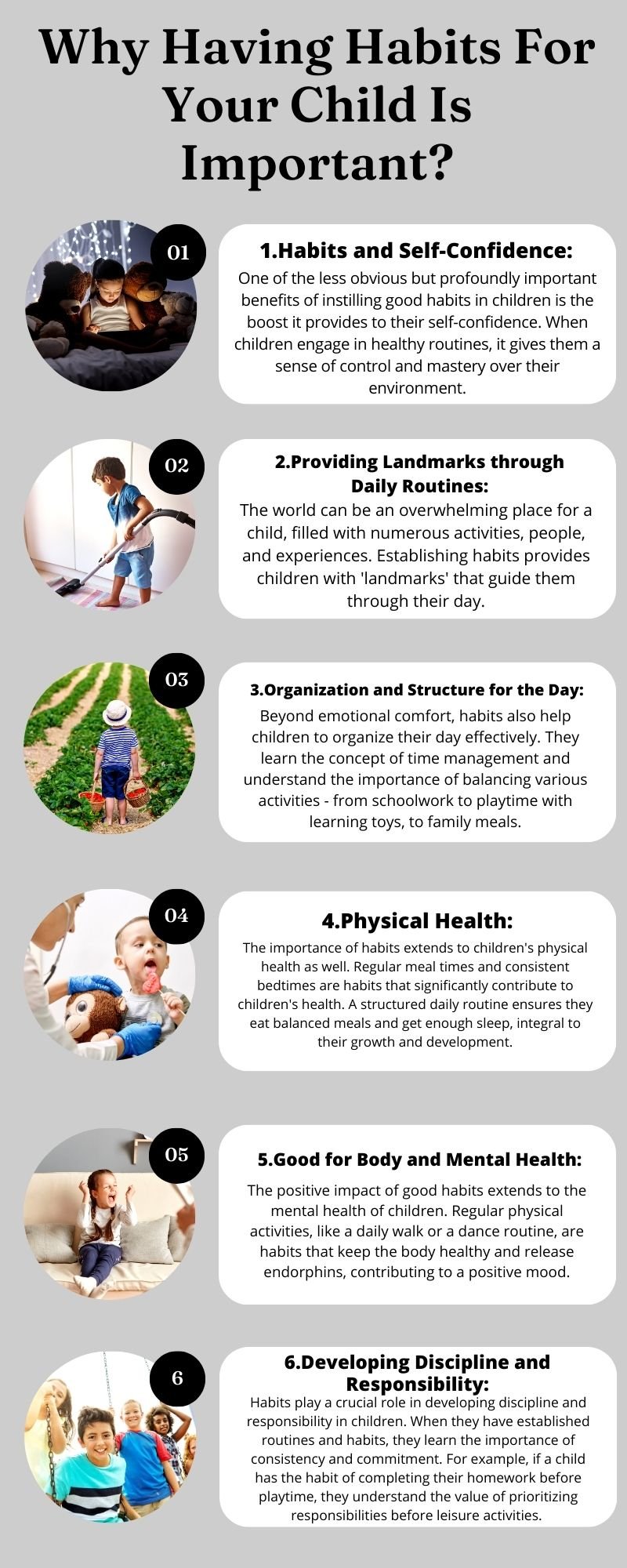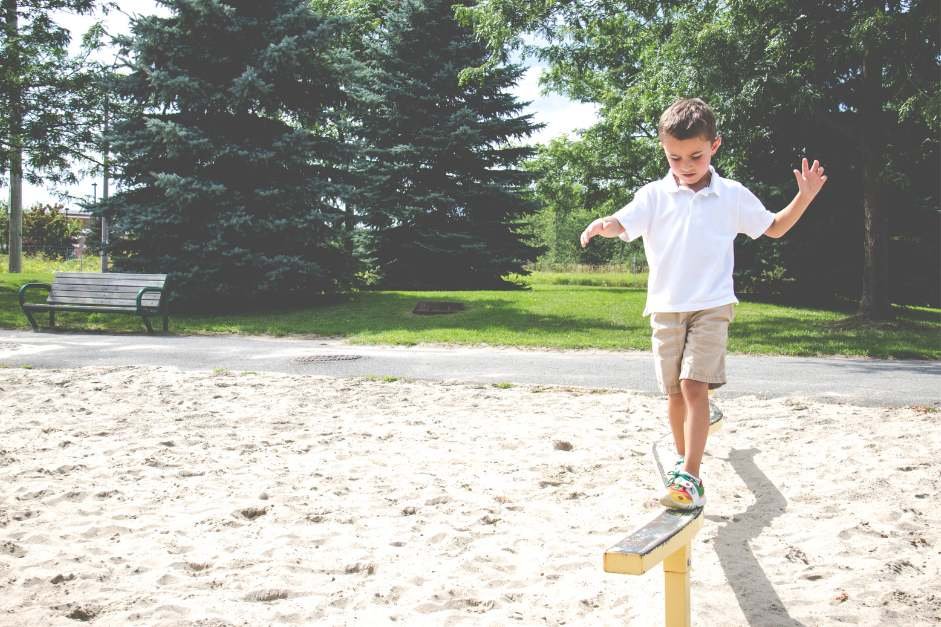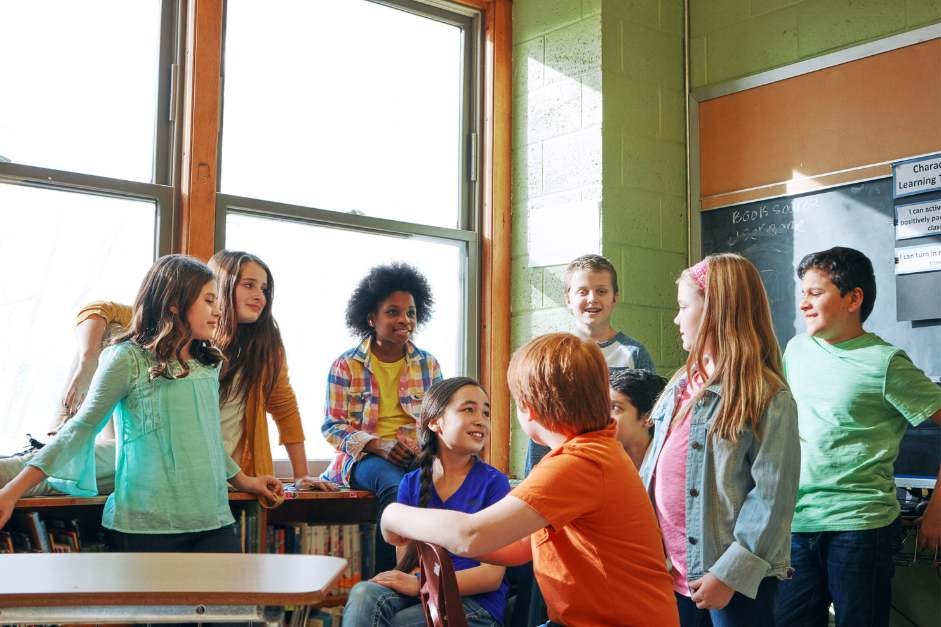In our fast-paced world, where change is constant, providing a solid foundation for our children is more critical than ever. Establishing habits is an integral part of this foundation, creating a secure environment for children to grow and flourish. Our children’s habits significantly impact their overall well-being, from their physical health to their psychological well-being, their sense of security, and ultimately, their success in life.
Habits and Self-Confidence
One of the less obvious but profoundly important benefits of instilling good habits in children is the boost it provides to their self-confidence. When children engage in healthy routines, it gives them a sense of control and mastery over their environment. For instance, incorporating the use of Montessori toys, renowned educational tools, can empower them to learn and explore at their own pace. These ‘learning toys’ foster independence, encouraging children to solve problems and make decisions on their own. Consequently, children become confident in their abilities, fostering a healthy self-image that can carry them throughout life.

Providing Landmarks through Daily Routines
The world can be an overwhelming place for a child, filled with numerous activities, people, and experiences. Establishing habits provides children with ‘landmarks’ that guide them through their day. Regular routines such as reading story books in French before bedtime, playing with educational toys after school, or helping with household chores, provide familiar waypoints in their daily journey. These habits create a sense of predictability and security, which is paramount for children’s emotional well-being.
The daily exposure to storybooks in French, for instance, not only enhances language skills but also cultivates an appreciation for other cultures, fostering global-minded ‘healthy kids’. Similarly, playtime with educational toys can be a landmark that encourages intellectual growth and creativity, making learning an enjoyable experience.
Organization and Structure for the Day
Beyond emotional comfort, habits also help children to organize their day effectively. They learn the concept of time management and understand the importance of balancing various activities – from schoolwork to playtime with learning toys, to family meals. This provides a structure that can help them navigate their day with less stress and more efficiency.

For example, children can learn about different countries and cultures through educational toys and storybooks in French in the afternoon, and then enjoy a healthy family meal in the evening. This structure fosters a sense of accomplishment and productivity, critical for their development into successful and responsible adults.
Physical Health: Healthy Kids Sleep and Eat Better
The importance of habits extends to children’s physical health as well. Regular meal times and consistent bedtimes are habits that significantly contribute to children’s health. A structured daily routine ensures they eat balanced meals and get enough sleep, integral to their growth and development. By becoming ‘healthy kids’, they are not only physically robust but also have the energy to engage in academic and extra-curricular activities effectively.
Moreover, the habit of bedtime storytelling, perhaps with musical books or storybooks in French, can create a tranquil atmosphere conducive to good sleep. Not only does this routine enhance their language skills and imagination, it also aids in their physical health by promoting quality sleep.
Good for Body and Mental Health
The positive impact of good habits extends to the mental health of children. Regular physical activities, like a daily walk or a dance routine, are habits that keep the body healthy and release endorphins, contributing to a positive mood.

Engaging with educational toys or Montessori toys encourages mental stimulation and reduces screen time, thereby promoting healthy brain development. Musical books can contribute to emotional expression and understanding, offering a creative outlet that can be therapeutic for children.
Developing Discipline and Responsibility
Habits play a crucial role in developing discipline and responsibility in children. When they have established routines and habits, they learn the importance of consistency and commitment. For example, if a child has the habit of completing their homework before playtime, they understand the value of prioritizing responsibilities before leisure activities. This sense of discipline helps them in their academic endeavors and later in their professional lives.
Additionally, habits like tidying up their play area or organizing their belongings teach children to take responsibility for their own space and belongings. By instilling these habits early on, children develop a sense of ownership and accountability, which are essential qualities for success in any aspect of life.
Building Strong Social Skills
Habits contribute to the development of strong social skills in children. Regular activities like family meals or participating in group playdates create opportunities for children to interact with others, practice communication, and build relationships. These consistent habits provide a sense of belonging and foster a supportive environment where children can learn and grow together.

Moreover, engaging in activities such as reading story books in French or participating in music classes can encourage teamwork and collaboration. These shared experiences help children develop empathy, respect, and effective communication skills. They learn to listen to others, share their thoughts and ideas, and appreciate different perspectives. Such habits contribute to their social development and equip them with essential skills to navigate relationships throughout their lives.
Instilling Lifelong Learning
By establishing habits centered around learning, we instill a love for knowledge and a passion for lifelong learning in children. Incorporating learning toys, educational games, and interactive activities into their daily routines creates a positive association with learning from an early age.
For instance, incorporating Montessori toys or learning toys that focus on problem-solving and critical thinking skills helps children develop a growth mindset. They understand that learning is an ongoing process and that challenges are opportunities for growth. These habits foster a curiosity-driven approach, where children actively seek knowledge and engage in continuous self-improvement.
Furthermore, habits like reading story books in French or exploring new subjects through educational resources expose children to different ideas, cultures, and perspectives. They develop a broader worldview and a thirst for knowledge that extends beyond the classroom. These habits lay the foundation for a lifelong love of learning, empowering children to adapt to an ever-changing world and pursue personal and professional growth.
Conclusion
In a world of complexities and distractions, it is our responsibility to equip our children with the right tools for their journey. Through the formation of good habits, we are not just helping them to navigate their current world, but also preparing them for the future. From Montessori toys to storybooks in French to consistent daily routines, the habits we instill today can shape the trajectory of their lives. In cultivating healthy habits, we are nurturing healthy kids, paving the way for them to become confident, responsible, and successful adults in the world of tomorrow.
